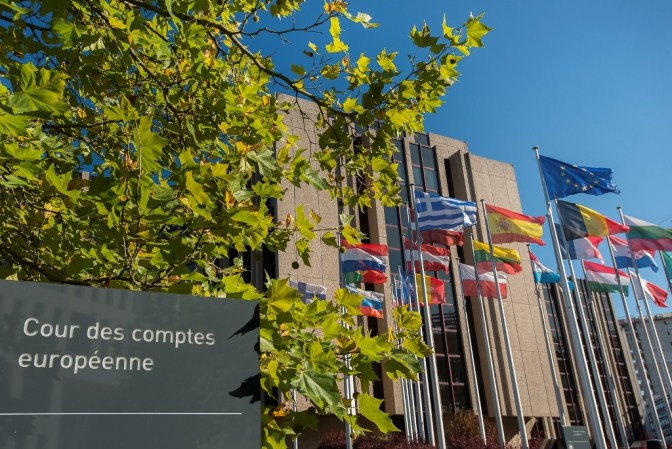The European Border and Coast Guard Agency (Frontex) has not been sufficiently effective in helping member states in managing the EU’s external frontiers, according to a special audit report published today by the European Court of Auditors (ECA).
Frontex’s support is not adequate to combat illegal immigration and cross-border crime, say the auditors. As well as concluding that Frontex has not fully implemented the mandate it received in 2016, the auditors also cast doubt on its capacity to effectively implement the new operational role that has been assigned to it.
Frontex was created in 2004 to address the EU’s border concerns – terrorism, trafficking, and migrant smuggling, for example – together with national authorities. Its mandate has gradually expanded since its creation, as has its budget (from €19 million in 2006 to €460 million last year) and its staff (from 45 to ca 750).
“Frontex’s tasks at the EU’s external borders are essential for the fight against cross-border crime and illegal immigration”, said Leo Brincat, the Maltese ECA member responsible for the report, at a press briefing (7 June). “Nevertheless, Frontex is currently not discharging that duty effectively. This is especially worrying at a time when Frontex is being given added responsibilities.”
In 2016, after the peak in the migration crisis, Frontex received a clear mandate to support member states in combating illegal immigration and cross-border crime. However, the auditors found gaps and inconsistencies in the information exchange framework, which hinders the capacity of Frontex and the Member States to monitor external borders and to respond when necessary.
Moreover, risk analysis and vulnerability assessment activities are not always supported by complete and good-quality data. Finally, the joint operations in the framework of the cross-border crime are not yet sufficiently developed in Frontex’s day-to-day activities.
The audit examined how Frontex has carried out its primary activities after the last external evaluation was carried out in 2015. It also comes timely, as Frontex in 2019 received a new mandate and regulation and will receive an enhanced role in the Commission’s new strategy for the Schengen area and its new strategy on voluntary return and reintegration of migrants and asylum seekers.
To fulfil its new tasks, Frontex will increase “exponentially” its operational staff to 10 000 by 2027 and its annual budget to around €900 million – all this according to political decisions without any impact assessment. Given that Frontex has not yet adapted to the requirements of its 2016 mandate, the auditors consider that it is not yet ready to implement its new tasks effectively.
Frontex has been accused of illegal pushbacks of migrants but the Commission has expressed its full trust in the agency after it was cleared in an internal investigation. Leo Brincat met MEPs of all political party groups during the audit but said at the press briefing that the issue of pushbacks was outside the scope of the audit.
“We couldn’t deviate from our original audit questions,” he explained. The audit covered the period from the end of 2016 (when Frontex’s new responsibilities came into force) until February 2020, i.e., just before the outbreak of the migration crisis at the Greek-Turkish border during which alleged pushbacks with the involvement of Frontex staff took place.
Brincat announced that another audit, due to be published in September, will look at EU’s returns and admissions policy. He did not want to comment on the functioning of Frontex’ management board and the credibility of its internal investigation of the alleged pushbacks. A European Parliament committee did not trust the EU agency on the reporting of pushbacks at the Greek border.
In their replies to the audit, both the European Commission and Frontex accepted the audit recommendations. These are partly technical in nature and relate to data collection, information exchange and risk analysis but do also address the need to improve Frontex’s operational response and the challenges posed by its 2019 mandate.
M. Apelblat
The Brussels Times

